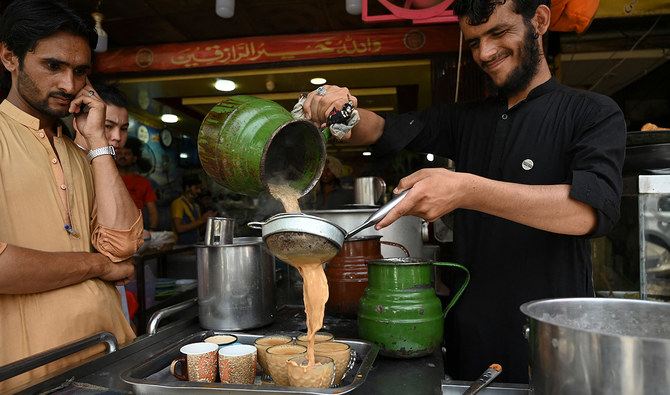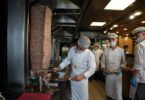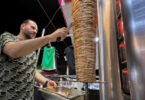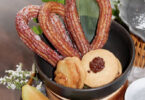Naimat Khan
KARACHI: Fasting during Ramadan breaks the usual noisy and hectic pattern of life in Karachi, Pakistan’s most populous city and commercial hub. Ramadan nights in many areas can be particularly quiet, especially as people retreat to their homes after the special Tarawih night prayers.
The lull lasts about two hours or so after sunset. Then shopkeepers and customers begin to appear on the streets once more, looking content after a hearty meal.
Slowly traffic begins to build up as the people of Karachi rush to shops and to the city’s rapidly proliferating restaurants chai khanas, or tea shops, which become hubs of social interaction and festivity throughout the holy month.
Heavily sugared tea is consumed by Pakistanis in large amounts at any time and in larger than ever amounts after sunset during Ramadan. And in Karachi, the rise of teahouse culture, like elsewhere in the world, is driven by the desire for human connection
“There would be complete quietness if there were no tea shops,” Hussain Abbas, an e-trader, told Arab News as he took a break from playing cards with his friends to have a sip of hot tea from his cup earlier this week. “We sit here for a long time at the hotel, it’s enjoyable.”
While there is no exact data on the number of tea shops in Karachi, recent years have seen a large number propping up in Karachi’s rich and poor neighborhoods alike, with many owned and operated by people from Quetta and other regions of the Pashtun belt in Balochistan province, which neighbors Sindh, of which Karachi is the provincial capital.
There is a large concentration of chai khanas in parts of Gulistan-e-Jauhar as well as the upscale neighborhoods of Defense and Clifton.
“If we have more time on weekends, we go to Defense,” Abbas, who lives in Gulistan-e-Jauhar, said. “Otherwise, we just sit here daily, as this place is near our homes.”
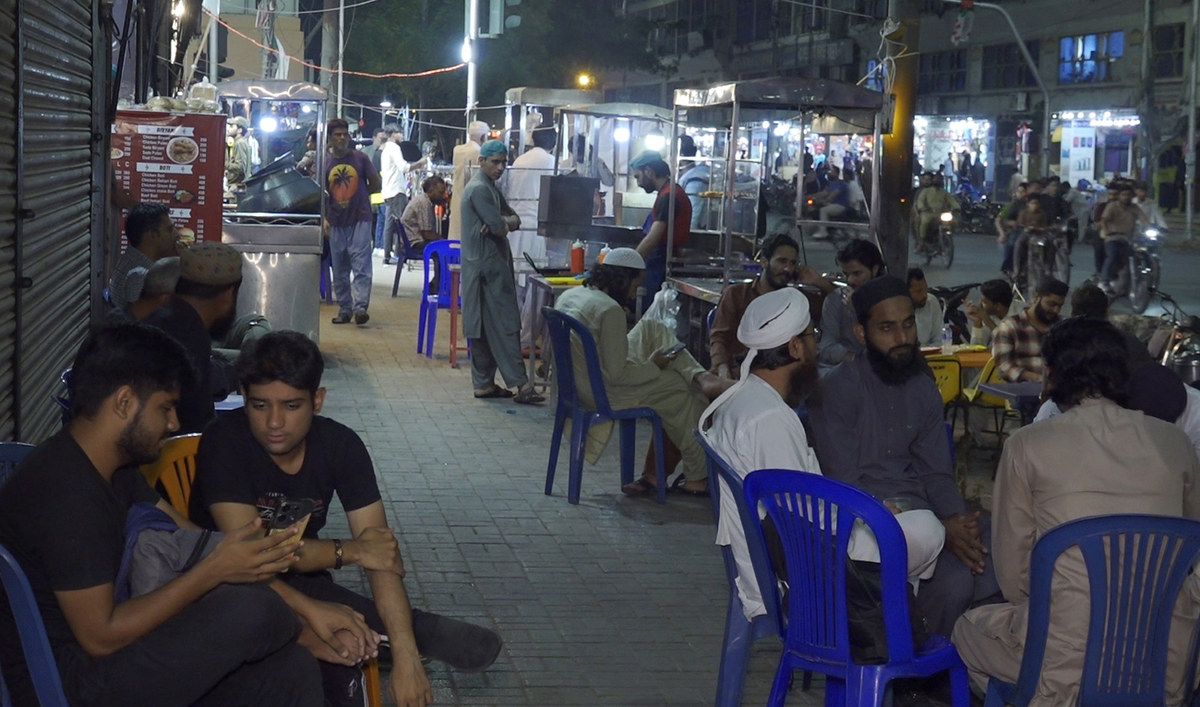
Around him, some patrons played cards while others indulged in board games like ludo. Many simply relished the charged atmosphere, catching a breath after a long day of fasting and spending long hours chatting with friends. Waiters buzzed around with trays full of steaming tea served in small ceramic cups and glasses.
Javed Iqbal, originally from a small town in the Faisalabad district, said the allure of Karachi was unmatched, particularly because of its nightlife.
“It feels like day during the night,” he said. “Karachi has its own charm at night … there’s a lot of enjoyment here, and the whole city stays open.”
“It’s been about an hour and a half now since we’ve been sitting here,” Iqbal added. “This is our third or fourth cup that’s going on. This will continue until [the pre-dawn] Suhoor [meal].”
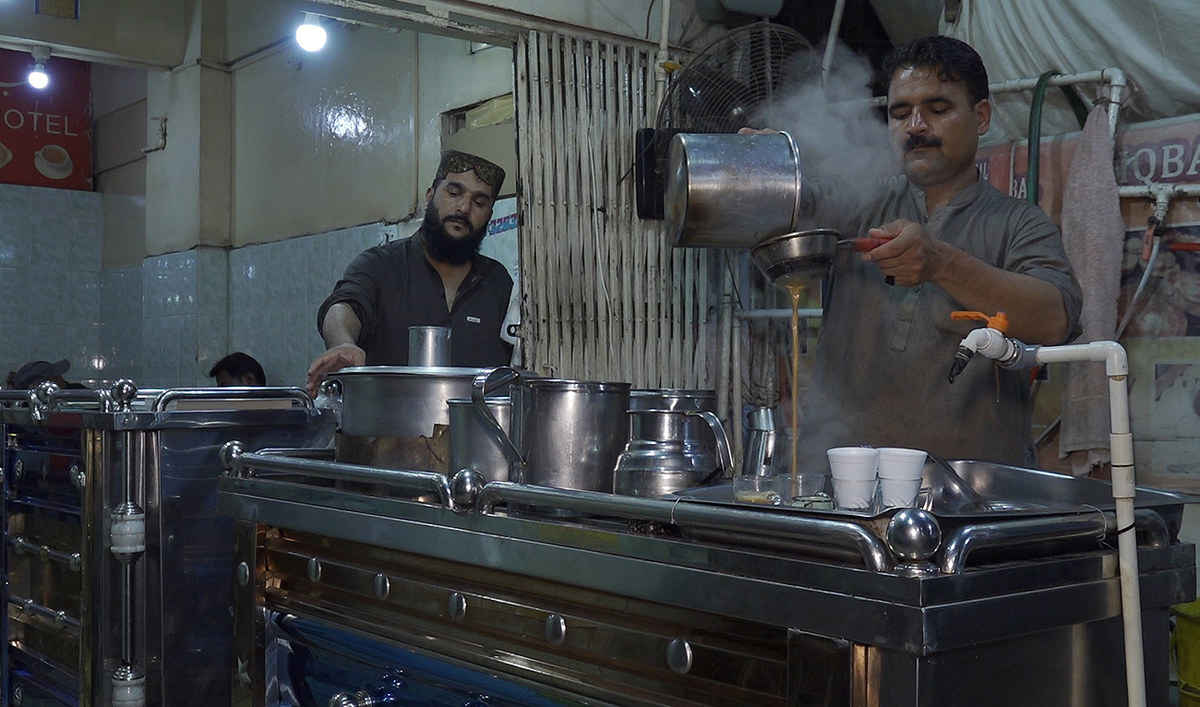
The Ramadan tradition of visiting tea shops at night is not limited to men alone. Meera Shubaib, a housewife from the Ranchore Line area, said she enjoyed having tea at roadside hotels with her husband during the holy month.
“We have great enthusiasm for tea, so coming out for tea becomes a kind of outing,” she said, adding that the city’s bustling street life during Ramadan was another attraction. “So far, nine days of Ramadan have passed, and praise be to God, we have come here almost daily.”
Muhammad Azeem Khan, the owner of a tea hotel in downtown Saddar, said Ramadan’s tea culture produced a festive environment across the city during the holy month.
“After breaking their fast, immediately after iftar, people start craving tea,” he said as he took a customer’s order.
Many people arrived at his shop close to midnight and stayed until the pre-dawn suhoor meal, Khan added:
“The point is, no one sleeps at night [in Karachi].”

